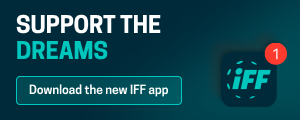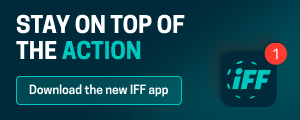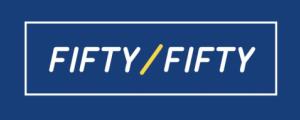The World Anti-Doping Agency has published the 2018 Prohibited list. The List shall come into effect on January 1st 2018. You can find the summary of major modifications and explanatory notes below.
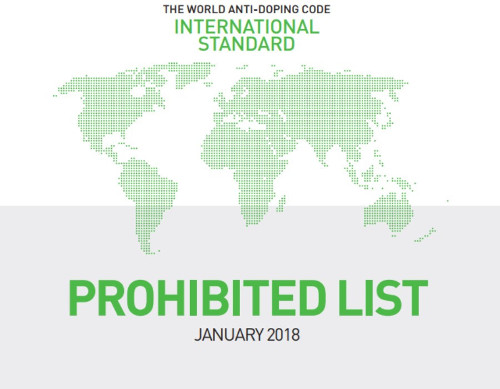
Substances and methods prohibited at all times (In- and Out-of-Competition)
Prohibited Substances
S1 ANABOLIC AGENTS
• Dihydrotestosterone was renamed to its International Non-proprietary Name (INN) (androstanolone).
1-androsterone (3α-hydroxy-5α-androst-1-ene-17-one) was added in S1.a as an example of exogenous
anabolic steroid.
• LGD-4033 and RAD140 were added as further examples of SARMs.
S2 PEPTIDE HORMONES, GROWTH FACTORS, RELATED SUBSTANCES AND MIMETICS
• For clarity and accuracy Section S2 was reorganized.
• ARA290 was removed as an example in this section because current literature suggests it does not meet
inclusion criteria.
• Deslorelin, goserelin, nafarelin and triptorelin were added as examples of 2.1.
• Growth Hormone fragments were included in 2.3 with AOD-9604 and hGH 176-191 added as examples;
CJC-1293 was added as example of GHRH and tabimorelin as a further example of GH secretagogue. GHRP-1, -3, -4, and -5 were added as examples of GHRP.
• Thymosin- β4 and its derivatives, e. g. TB-500, were added as example of prohibited growth factors.
• Cobalt: It is re-iterated that vitamin B12, which contains cobalt, is not prohibited.
S3 BETA-2-AGONISTS
• Dosing parameters of salbutamol were revised to make it clear that divided doses of salbutamol may not exceed 800 micrograms over any 12 hours.
• Tulobuterol was added as an example.
• The statement on the urinary thresholds was improved.
S4 HORMONE AND METABOLIC MODULATORS
• Clomifene is now stated by its INN.
• In the absence of an INN, the IUPAC name of GW1516, 2-(2-methyl-4-((4-methyl-2-(4-(trifluoromethyl)phenyl) thiazol-5-yl)methylthio)phenoxy) acetic acid as well as an alternative name (GW501516) were included.
• SR9009, a Rev-Erb-α agonist, was added as an example of Activators of the AMP-activated protein kinase (AMPK).
S5 DIURETICS AND MASKING AGENTS
• In consideration of the information published in scientific articles since 2012 that particularly addresses
the ability of glycerol to influence the athlete‘s plasma volume and parameters of the Athlete Biological
Passport (ABP), the magnitude of glycerol-derived effects is regarded as minimal. Therefore, glycerol has
been removed from the Prohibited List.
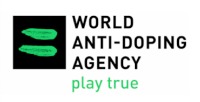
Prohibited Methods
M2 CHEMICAL AND PHYSICAL MANIPULATION
• M2.2: the permitted volume and timing of intravenous infusions were changed from infusions of no more than 50 mL per 6-hour period to no more than a total of 100 mL per 12-hour period in order to allow greater flexibility for the safe administration of non-prohibited therapeutic substances, for example, iron.
• To reflect medical practice, “hospital admissions” has been changed to “hospital treatments” and “clinical
investigations” has been clarified as “clinical diagnostic investigations”.
M3 GENE DOPING
• The definition has been revised to include current and emerging gene manipulating technologies.
Substances and Methods Prohibited In-Competition
S6 STIMULANTS
• 1,3-Dimethylbutylamine was added as an example. This substance can be found in some dietary supplements.
S8 CANNABINOIDS
• The category Cannabimimetics, e.g. “Spice, JWH-018, JWH-073, HU210” was changed to “synthetic
cannabinoids, e.g. Δ9-tetrahydrocannabinol (THC) and other cannabimimetics”. The synthetic cannabinoids are one of the main classes of novel psychoactive substances that have constantly emerging new drugs
and changing availability. The previous list of examples continues to be prohibited, but are currently used less commonly. “Other cannabimimetics” replaced these examples.
• Cannabidiol is no longer prohibited. Synthetic cannabidiol is not a cannabimimetic; however, cannabidiol extracted from cannabis plants may also contain varying concentrations of THC, which remains a prohibited substance.
S9 GLUCOCORTICOIDS
• Examples of commonly used glucocorticoids were added for greater clarity.
Substances Prohibited in Particular Sports
P1 ALCOHOL
• After careful consideration and extensive consultation, Alcohol was excluded from the Prohibited List. The intent of this change is not to compromise the integrity or safety of any sport where alcohol use is a concern, but rather to endorse a different means of enforcing bans on alcohol use in these sports. The four International Federations (IF) affected by this change have been alerted sufficiently in advance in order to amend their rules and to put in place protocols to test for alcohol use and appropriately sanction athletes who do not abide by the rules of their sport. Control of the process will allow IF more flexibility in applying rules or thresholds as they see fit. The National Anti-Doping Organizations are no longer obliged to conduct tests but may assist IF and National Federations where appropriate.
P2 BETA BLOCKERS
• For logical consistency, the category known as P2. Beta Blockers was renamed P1. Beta Blockers.
MONITORING PROGRAM
The following were added to evaluate misuse in sport:
• 2-ethylsulfanyl-1H-benzimidazole (bemitil) in- and out-of-competition
• Hydrocodone in-competition.
Mitragynine and telmisartan were removed from the Monitoring Program because the required information on prevalence was obtained.
You can find the WADA Prohibited List 2018 here.
